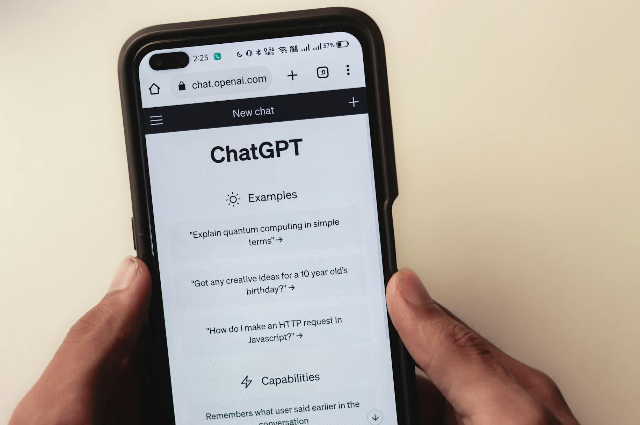
Artificial intelligence is no longer confined to boardrooms and tech labs—it has entered the most personal spaces of human life, including romantic relationships. In an age where therapy can be expensive and personal biases often cloud judgment, some couples are now using ChatGPT as a relationship mediator.
What was once a futuristic fantasy is now a reality: AI is playing referee in heated arguments, offering neutral advice, and, in some cases, even “saving” relationships. But while some swear by its benefits, others question whether outsourcing relationship problems to an algorithm could be a sign of deeper issues.
The Los Angeles Couple Who Swapped Couples Therapy for ChatGPT
For Abella Bala and Dom Versaci, a couple from Los Angeles, AI isn’t just a novelty—it’s an active participant in their relationship.
Faced with recurring arguments that led to miscommunication and frustration, Bala and Versaci decided to bring in an unusual third party; ChatGPT. At just $20 a month, it was a fraction of what they would have paid for in professional therapy.
“It’s like having a neutral third person in the room,” Bala explained. “When we can’t see eye to eye, we type everything out and let ChatGPT break it down.”
Their process is simple. During an argument, they each write their perspectives into ChatGPT, asking it to analyse their conflict. The AI, programmed to recognize common relational issues, offers logical breakdowns, rephrasing arguments in a way that allows each partner to see the other’s point of view.
Surprisingly, the method has worked. According to the couple, AI’s neutral stance prevents the emotional escalation that often occurs when they argue alone. “It’s helped us be more self-aware,” Versaci admitted.
“We fight less, and when we do, we’re quicker to resolve things.”
However, AI’s lack of human intuition is evident. Bala recalls a time when ChatGPT suggested they try an open relationship to address their communication issues. “That was a hard pass,” she said. “It reminded us that, while helpful, AI doesn’t always understand human relationships the way a person would.”
A Reddit Confession: “ChatGPT Saved My Marriage”
The phenomenon isn’t limited to just one couple. A viral Reddit post titled “ChatGPT Saved My Marriage” tells the story of a user who stumbled upon AI-assisted relationship counselling by accident.
After a particularly heated argument with their spouse, the user vented to ChatGPT. But instead of reinforcing their viewpoint, the AI offered a perspective that made them reconsider their stance.
“It pointed out that I might have been dismissing my partner’s feelings,” the Reddit user wrote. “It helped me reflect on my own actions in a way I hadn’t before.”
Instead of escalating the fight, the AI-assisted insight led to a more constructive conversation. According to the user, it was a turning point in their marriage.
AI as a Relationship Tool: Innovation or a Sign of Trouble?
The rise of AI in personal relationships signals a shift in how people seek emotional guidance. Advocates argue that ChatGPT provides a rational, unbiased voice—something that friends and family, often swayed by personal loyalties cannot offer.
But critics warn of over-reliance. Relationship therapists caution that while AI can provide structured feedback, it lacks the emotional intelligence and human nuance needed for deeper relationship repair.
More concerning is the possibility of AI becoming a crutch for couples who struggle with direct communication. “If you need an AI to help you have a basic conversation with your partner, that’s a red flag,” says Dr. Laura Bennett, a marriage therapist based in New York. “Relationships require emotional depth, and AI can’t provide that.”
The Ethical and Privacy Dilemma
Another issue looming over AI-assisted relationships is data privacy. Couples pouring intimate details into ChatGPT might not fully grasp where their information is going. While companies like OpenAI claim that they do not store conversations, data security remains a valid concern.
“People are sharing their most private thoughts with a machine that is still part of a corporate system,” Bennett warns. “That should make them think twice.”
Final Verdict: A Helpful Tool, But Not a Replacement
While AI offers an interesting and potentially helpful way to mediate conflicts, it cannot replace real emotional intelligence, empathy, or professional therapy.
For couples like Bala and Versaci, ChatGPT is simply a tool—one that helps them navigate disagreements but does not replace their own emotional work. “At the end of the day, we’re the ones who have to make the relationship work,” Bala says. “AI just gives us another perspective.”
As AI continues to evolve, its role in personal relationships will likely grow. The real question is whether this is a sign of progress or an unsettling reliance on technology in matters of the heart.
